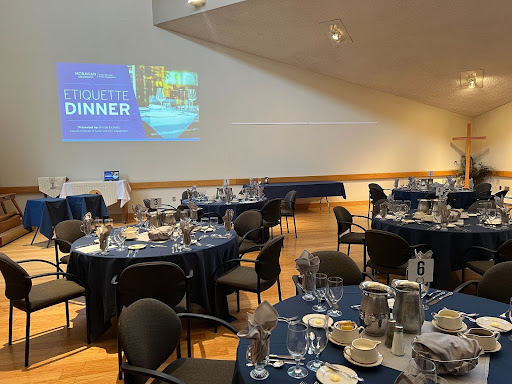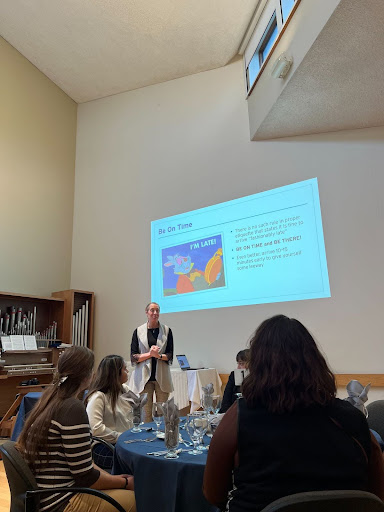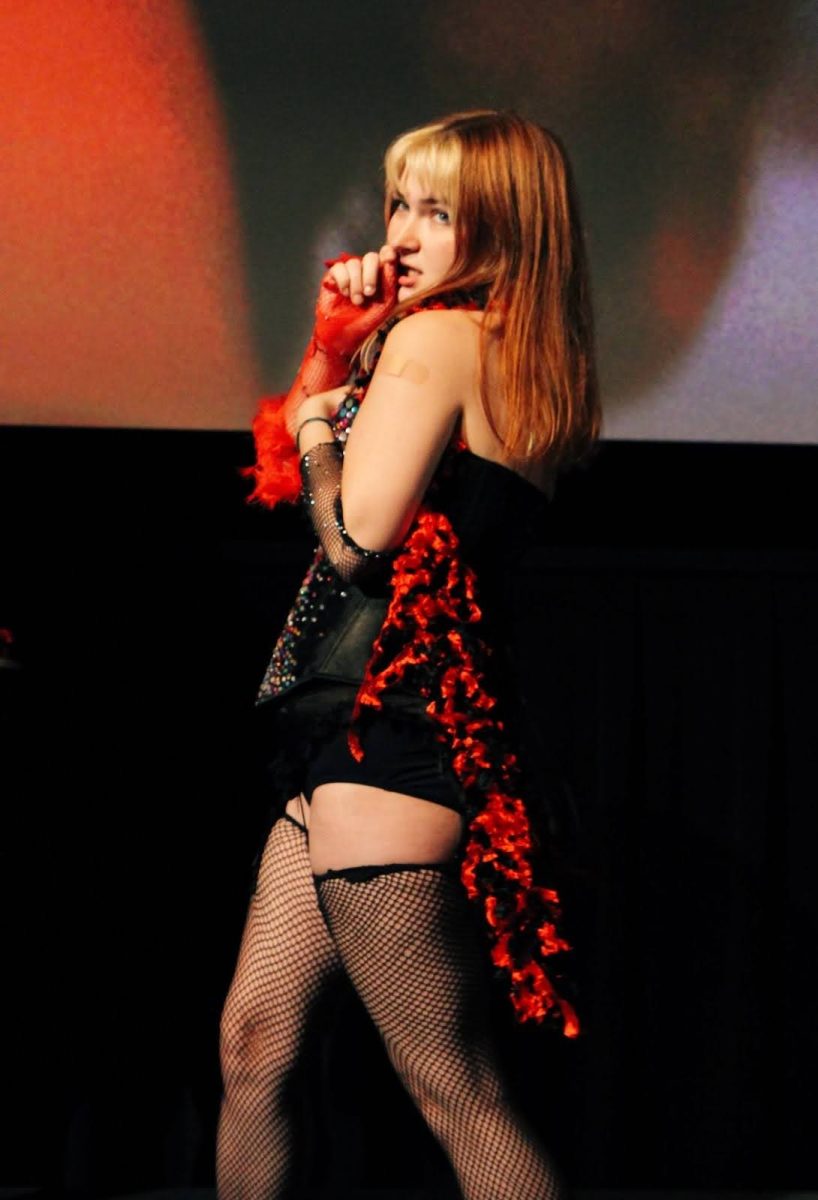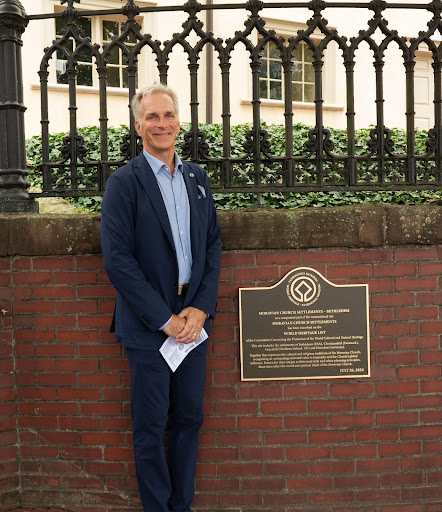
On April 3, students were invited to learn the art of table etiquette over a four-course meal served in the Bahnson Center for Moravian’s first-ever Etiquette Dinner. Dressed in their best business casual attire, students learned from executive director of Career and Civic Engagement, Kristin Eicholtz as she taught the proper ways to behave during an interview taking place over a meal.
While some interviews take place in an office setting, Eicholtz raised the important question: How does one handle themself during an interview while food is being served? As students move into the workforce, possible employers may offer to take interviewees to dinners, lunches, or coffees, and it is important to understand the proper etiquette necessary to succeed in an interview in this setting.
First, students learned the intended purpose of every utensil in front of them. An easy trick to remember comes from Titanic when Rose tells Jack to start the meal using the outermost utensil and move inward. Eicholtz taught students that liquids belong on the right of the plate and bread belongs on the left. An easy way to remember this, Eicholtz said, is to make an okay sign with both of your hands; if you look to the left hand, it almost looks like the letter B, and if you look to your right hand, it resembles the letter D.
As the night went along, Eicholtz taught both American and European table etiquette. Highlighting how Moravian offers study abroad trips to European countries and the importance of students learning the cultural norms of dining for whatever country they visit. Students were also educated on how to communicate with waitstaff without interrupting the flow of conversation. If you need to use the restroom but are not yet done eating, place your napkin on your seat; on the flip side, if you use the restroom and do not want to find your plate when you return, place your napkin to the left of your plate. At all other times, your napkin should remain on your lap.

Another way to communicate with restaurant staff is when you are eating and want to take a break for conversation, but you are still eating, keep your knife at the top of your plate, with the blade facing you, angled diagonally. Then you want to have your fork, and depending on which etiquette style you are using (American or European), the fork tines are down/up at the bottom of the plate. To communicate that a server may clear your plate from the table, move the knife to meet the fork.
Besides teaching eating etiquette, Eicholtz talked about general etiquette, diving into topics such as how to act at a wedding, better manage time, send thank-you notes, and enhance your personal marketability. Showing up fashionably late does not work in the real world; if you arrive fifteen minutes late for an interview, you probably won’t be hearing from that company again, whereas if you show up fifteen minutes early, you look prepared, you have time to use the restroom, give yourself a pep talk, and absolutely rock your interview.
Every student was assigned a table number where they would sit and converse with fellow Greyhounds and two Table Hosts. These hosts were there to guide the conversation when awkward silences arose. Table Hosts taught students at their table how to start a conversation with someone they’ve just met and create a rapport with them.
It was important not only to the Table Hosts but to Eicholtz that everyone felt as comfortable as they could.
“Tonight, I want for you all to not be stressed. Sometimes, people think that at an etiquette dinner, everyone’s going to be scrutinizing your every move,” Eicholtz said. “That’s not the case. This is for you to practice, just like you would practice for an interview, on your resume, or for a sport. This is how we get better.”
Eicholtz, Moravian, and the Dining staff all hope that this can become an annual event for generations of students to come.
“I thought the Etiquette Dinner was really well prepared. Everything Kristin presented in the slideshow was really nice, some of the things I didn’t even realize like with the plates and utensils,” said Angel Velazquez ‘26, a nursing major. “I would recommend coming to this if you can. It’s kind of crazy that this is the first time they’re doing this.”







